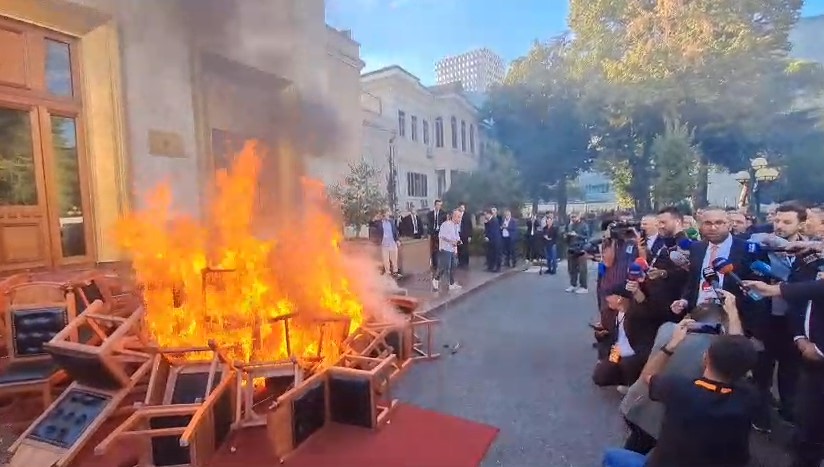Albanian opposition escalates tensions in Parliament with radical protests

Photo: Opposition members set fire to chairs in the courtyard of Albania’s Parliament
The Democratic Party (PD) has intensified its strategy of obstructing parliamentary sessions. In a dramatic turn, opposition members set fire to chairs in the courtyard of Albania’s Parliament, protesting a recent court decision sentencing PD MP Ervin Salianji to one year in prison for false reporting.
Why is this important: The radical move by the PD signals an escalation in their opposition to the current government, accusing Prime Minister Edi Rama of using the justice system to target key opposition figures. Salianji’s conviction is seen by the opposition as politically motivated, as he had previously exposed a controversial case involving the brother of former Interior Minister Fatmir Xhafaj.
Context: Tensions peaked during the parliamentary session when opposition MPs physically clashed with the Speaker and threw objects, including parts of chairs, in protest. Key figures, like Flamur Noka, led the opposition’s charge, further polarizing the session. The PD accuses the government of manipulating the judiciary in cases involving prominent opposition figures like Sali Berisha, who is under house arrest for corruption charges, and Ervin Salianji, now imprisoned. The opposition has vowed to continue these protests nationwide, with plans to launch civil disobedience campaigns starting on October 7.
What the PD demands: The opposition claims that the government has undue influence over the courts, citing the arrests and convictions of key Democratic Party figures as evidence of political persecution. They demand the establishment of a technical government to oversee the upcoming 2025 parliamentary elections, arguing that only this can ensure free and fair voting.
Conclusion: With national protests planned, the political landscape in Albania is growing increasingly tense. The opposition’s confrontational tactics—setting fires and physically disrupting parliamentary sessions—are part of a broader strategy to force political change. However, their radical approach may risk further destabilizing the political environment, especially at a time when Albania is striving to present itself as a stable candidate for EU integration.


